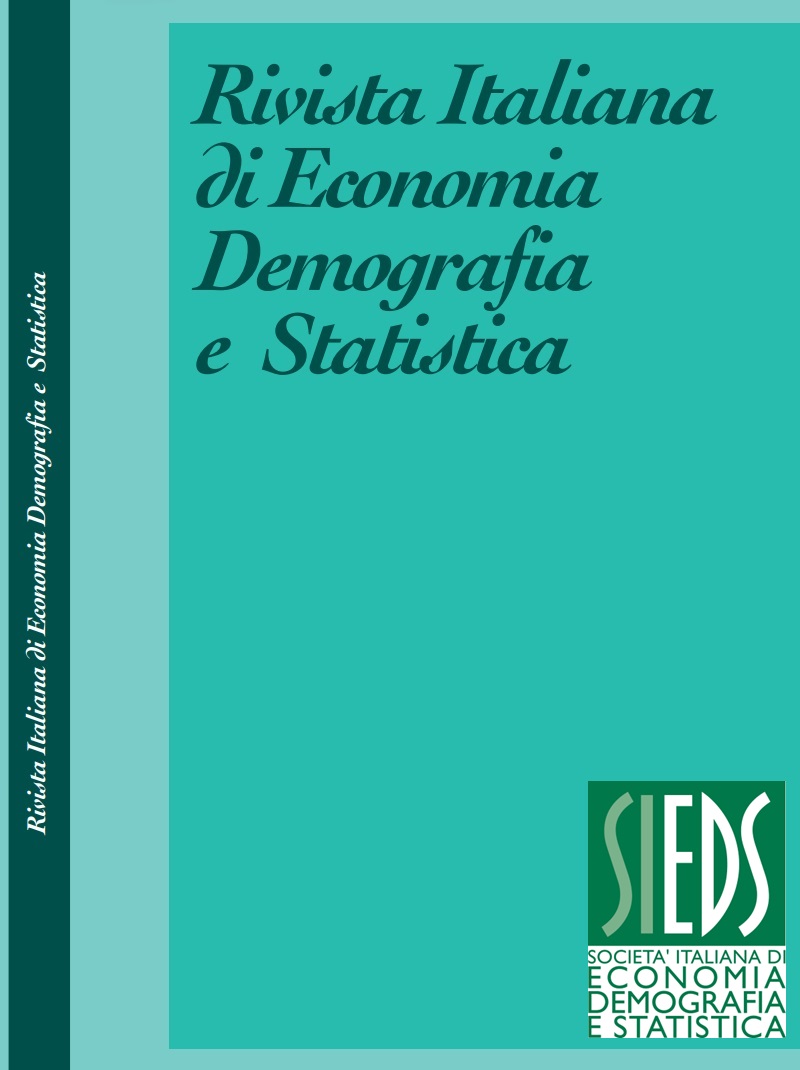SDG composite indicators for Mediterranean countries: a new theoretical approach
Abstract
Composite indicators provide summary picture of multidimensional phenomena, and the corresponding rankings facilitate evaluations and comparisons over time and space. Standard composite indicators often assume compensability among indicators. We argue that the compensability hypothesis needs to be restricted especially when analyzing economic, social and environmental aspects. Among all the member of the new family of composite indicators made by penalized versions of the generalized means introduced by Mariani et al (2022), we focus on the penalized Geometric Mean (pGM). This index is defined by means of a penalty factor that accounts for the (horizontal) variability of the normalized indicators opportunely scaled and transformed via the Box-Cox function. To illustrate the appealing of our proposal, we compute penalized Geometric Mean and we compare it with the Arithmetic Mean and the Geometric Mean. We focus on data referring to the Sustainable Development Goals (SDGs) (Sachs et al., 2021). More in datail, among the 17 Goals, analyse Goal 2: “End hunger, achieve food security and improved nutrition and promote sustainable agriculture”, the so-called “Zero Hunger” and we compute the three indices for world-wide Countries with a focus on 17 Mediterranean Countries.
Downloads
Published
Issue
Section
License
Copyright (c) 2022 Francesca Mariani, Mariateresa Ciommi, Maria Cristina Recchioni, Giuseppe Ricciardo Lamonica, Francesco Maria Chelli

This work is licensed under a Creative Commons Attribution 4.0 International License.



